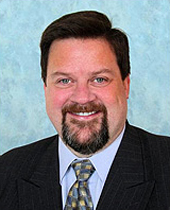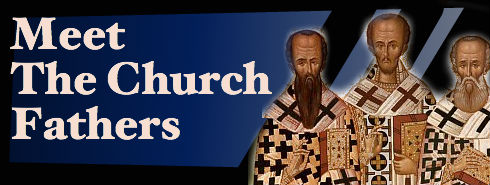This letter was written by Sarah Edwards, to her brother, James Pierpoint of New Haven about the visit of the evangelist, George Whitefield, who came to Northampton in October, 1740. (1)
October 24, 1740.
Dear Brother James,
I want to prepare you for a visit from the Rev. Mr. Whitefield, the famous preacher of England. He has been sojourning with us, and after visiting a few of the neighbouring towns, is going to New Haven, and from thence to New York.
He is truly a remarkable man, and during his visit, has, I think, verified all we have heard of him. He makes less of the doctrines than our American preachers generally do and aims more at affecting the heart. He is a born orator. You have already heard of his deep-toned yet clear and melodious voice. O it is perfect music to listen to that alone!
And he speaks so easily, without any apparent effort. You remember that David Hume thought it was worth going twenty miles to hear him speak; and Garrick said, ‘He could move men to tears or make them tremble by his simple intonations in pronouncing the word Mesopotamia.’ Well, this last was a mere speech of the play actor; but it is truly wonderful to see what a spell this preacher often casts over an audience by proclaiming the simplest truths of the Bible. I have seen upwards of a thousand people hang on his words with breathless silence, broken only by an occasional half-suppressed sob.
He impresses the ignorant, and not less, the educated and refined. It is reported that while the miners of England listened to him, the tears made white furrows down their smutty cheeks. So here, our mechanics shut up their shops, and the day-labourers throw down their tools, to go and hear him preach, and few return unaffected. A prejudiced person, I know, might say that this is all theatrical artifice and display; but not so will anyone think who has seen and known him.
He is a very devout and godly man, and his only aim seems to be to reach and influence men the best way. He speaks from a heart aglow with love, and pours out a torrent of eloquence which is almost irresistible. Many, very many persons in Northampton date the beginning of new thoughts, new desires, new purposes, and a new life, from the day on which they heard him preach of Christ and this salvation. I wish him success in his apostolic career; and when he reaches New Haven, you will, I know, show him warm hospitality.
Yours in faithful affection,
Sarah
Notes:
1. Arnold Dallimore, George Whitefield, Vol. 1 (London: Banner of Truth Trust, 1970), pp. 538-9.

 Here are excellent resources concerning the view of the early Church regarding Scripture.
Here are excellent resources concerning the view of the early Church regarding Scripture. When outlining the central truths of the Reformation (the five solas and the doctrines of grace), preventing them from even looking into the Scriptures on such vital matters.
When outlining the central truths of the Reformation (the five solas and the doctrines of grace), preventing them from even looking into the Scriptures on such vital matters. On September 1, 1539, John Calvin countered the Roman Catholic apologetics of his day with his letter to Cardinal Sadoleto.
On September 1, 1539, John Calvin countered the Roman Catholic apologetics of his day with his letter to Cardinal Sadoleto. “But when our wickedness had reached its height, punishment and death, was impending over us; and when the time had come which God had before appointed for manifesting His own kindness and power, how the one love of God, through exceeding regard for men, did not regard us with hatred, nor thrust us away, nor remember our iniquity against us, but showed great long-suffering, and bore with us, He Himself took on Him the burden of our iniquities, He gave His own Son as a ransom for us, the holy One for transgressors, the blameless One for the wicked, the righteous One for the unrighteous, the incorruptible One for the corruptible, the immortal One for them that are mortal. For what other thing was capable of covering our sins than His righteousness? By what other one was it possible that we, the wicked and ungodly, could be justified, than by the only Son of God? O sweet exchange! O unsearchable operation! O benefits surpassing all expectation! that the wickedness of many should be hid in a single righteous One, and that the righteousness of One should justify many transgressors!”
“But when our wickedness had reached its height, punishment and death, was impending over us; and when the time had come which God had before appointed for manifesting His own kindness and power, how the one love of God, through exceeding regard for men, did not regard us with hatred, nor thrust us away, nor remember our iniquity against us, but showed great long-suffering, and bore with us, He Himself took on Him the burden of our iniquities, He gave His own Son as a ransom for us, the holy One for transgressors, the blameless One for the wicked, the righteous One for the unrighteous, the incorruptible One for the corruptible, the immortal One for them that are mortal. For what other thing was capable of covering our sins than His righteousness? By what other one was it possible that we, the wicked and ungodly, could be justified, than by the only Son of God? O sweet exchange! O unsearchable operation! O benefits surpassing all expectation! that the wickedness of many should be hid in a single righteous One, and that the righteousness of One should justify many transgressors!” TurretinFan: Response to Cursilista Regarding Church History
TurretinFan: Response to Cursilista Regarding Church History Jaroslav Pelikan:
Jaroslav Pelikan: “It seems odd, Commenting and Commentaries (London: Passmore & Alabaster, 1876), 1.
“It seems odd, Commenting and Commentaries (London: Passmore & Alabaster, 1876), 1. Phil’s reply: You have seriously misunderstood Sola Scriptura if you really imagine that it rules out human teachers or eliminates systematic theology. The Reformers (including Calvin) often cited the works of Augustine, Tertullian, Jerome, Cyprian, Ambrose, and others-ranging from the early church fathers through Aquinas. They didn’t follow any of them slavishly, of course, but they certainly took them seriously. Not one of the major Reformers would have tolerated the claim that because the Church Fathers were mere men they were therefore irrelevant or incapable of shedding any helpful light on tough theological questions.
Phil’s reply: You have seriously misunderstood Sola Scriptura if you really imagine that it rules out human teachers or eliminates systematic theology. The Reformers (including Calvin) often cited the works of Augustine, Tertullian, Jerome, Cyprian, Ambrose, and others-ranging from the early church fathers through Aquinas. They didn’t follow any of them slavishly, of course, but they certainly took them seriously. Not one of the major Reformers would have tolerated the claim that because the Church Fathers were mere men they were therefore irrelevant or incapable of shedding any helpful light on tough theological questions. 